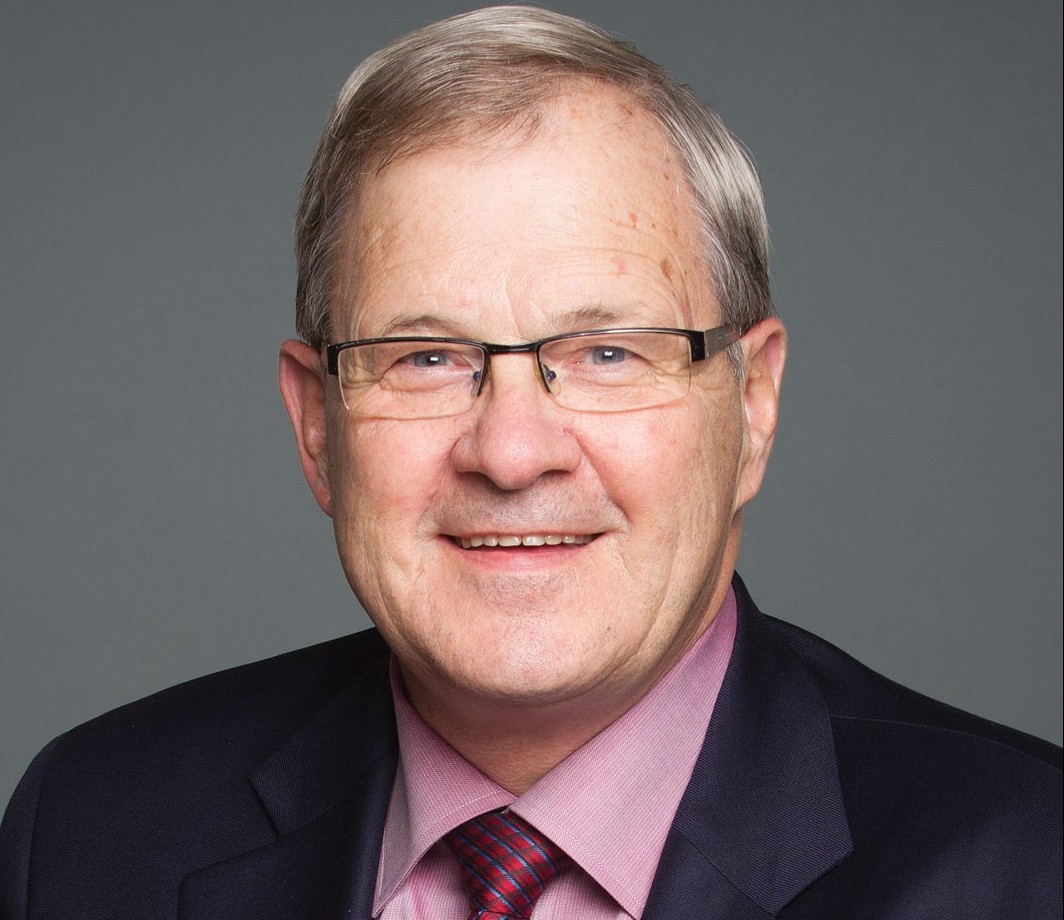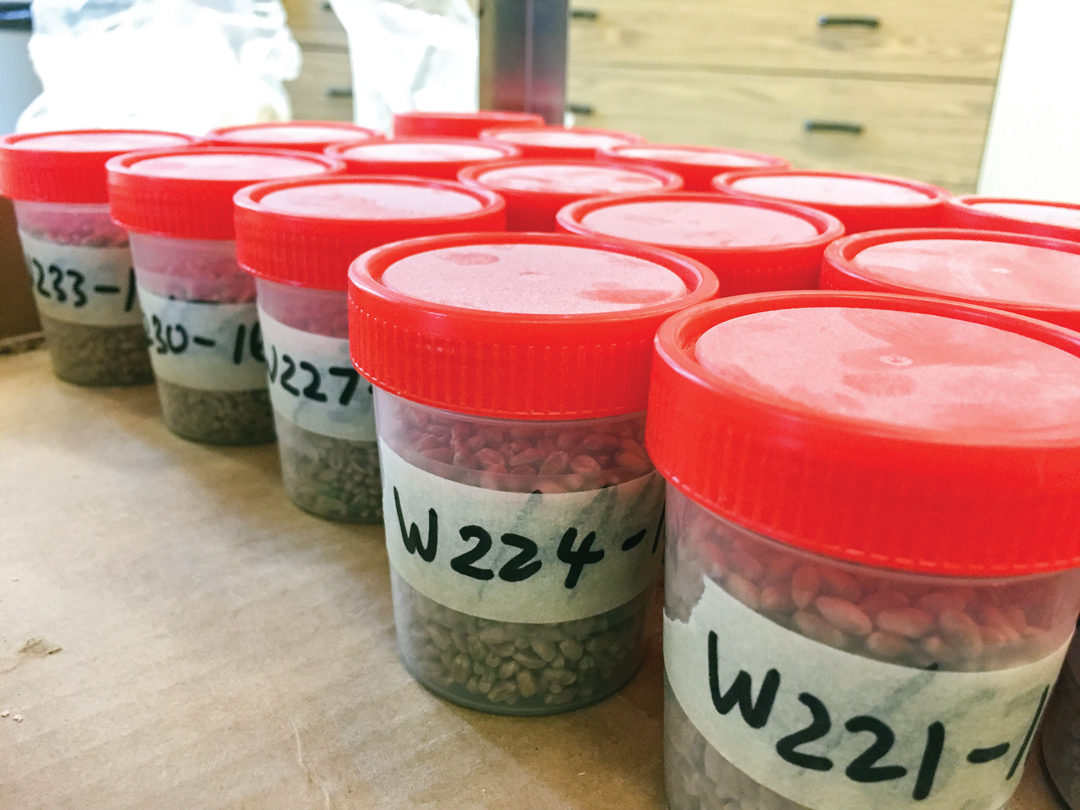ELDER STATESMAN
NEW AGRICULTURE MINISTER MERGES RURAL ROOTS AND THREE-PIECE SUITS
BY GEOFF GEDDES
“Whatever you do, do it right, and for the right reasons, or don’t do it at all.”
It’s a lesson his dad taught him early and often, and one that has guided him throughout his working life. Perhaps it’s one reason that the Honourable Lawrence A. MacAulay, Canada’s new minister of agriculture and agri-food, has enjoyed longevity in a field where those earning a second term are considered “veterans.”
On Oct. 19, 2015, he scored his latest election victory in decisive fashion, winning 65 per cent of the vote.
CARDIGAN WAS THE PERFECT FIT
First elected in 1988 to represent Cardigan in his home province of Prince Edward Island, MacAulay is the province’s longest-serving MP. “The people of Cardigan were kind enough to re-elect me eight times,” MacAulay said.
In all the excitement of his first election win, he forgot to ask one important question. “I didn’t know what the remuneration was until I got my first paycheque. Of course everyone needs to be paid, but that was not my motivation for entering politics. I wanted a chance to make a difference and make things better,” he said.
Over the years, he has had ample opportunity to do just that, holding such diverse positions as minister of labour, Liberal Party critic for Fisheries and Oceans, and solicitor general of Canada. Asked to choose a favourite, he singled out secretary of state (veterans).
“Being part of the Canada Remembers program that honours veterans and teaches Canadians about our military sacrifices and achievements was a highlight. It reminded me of moments like our role in liberating Belgium in World War II, so it was a source of tremendous pride and something I’ll never forget.”
His committee work includes everything from the Treasury Board to public security and anti-terrorism, but the one that stood out for him was the Standing Committee on Foreign Affairs and International Development. “It rang a bell in my head when all of these Third World countries wanted details on our supply-management programs. That’s when I realized just how important supply management is to our country and our future,” MacAulay said.
PLANTING THE SEEDS OF SUCCESS
Of course, long before the elections and committees, there was farming life. As the son of a potato seed farmer (one of the first in the St. Peter’s Bay area of Prince Edward Island), MacAulay formed a philosophy that he carried with him to his new portfolio.
“I don’t want to brag, but when I took over the farm, I expanded the dairy segment and produced some very good herds,” he said. “It showed me that whether you’re in politics or potatoes, you have to dig deep and find out what you’re made of. In both cases, it isn’t hopscotch, it’s hard work.”
But don’t accuse MacAulay of complaining. In spite of the long hours and rare weekends off, he likes to think the experience helped him be the best he could be. “Ultimately, though, that’s for the voters to decide,” he said.
Interestingly, with a political career that now spans 28 years, MacAulay said his recent ministerial appointment might be the highlight. “I loved farming and living in a rural community; the people are wonderful. Coming from that background and having the prime minister make you his agriculture minister is pretty hard to top,” he said.
TAKING ISSUES
While he’s only in the early stages of his appointment as minister, MacAulay already has a number of issues to address, not the least of which is the Trans-Pacific Partnership (TPP). The Canadian cereals industry is squarely involved in the deal, which could mean millions of dollars in extra revenue from exports. But there are strong opinions being voiced on both sides of the TPP debate, and MacAulay wants to hear them all.
“I encourage anyone who is against the TPP to contact me and share your concerns. Of course, as a politician you normally just hear the bad things, so I welcome the views of people who favour the deal as well,” he said.
Many in agriculture complain about the so-called “Rodney Dangerfield complex” the lack of respect for the significant role the industry plays in Canada’s economy. Having experienced agriculture from down in the field and up on Parliament Hill, MacAulay said it’s a challenge he embraces.
“We need to make sure that the men and women who do the work in agriculture are properly paid for it,” he said.
He also stressed the importance of investing in science. As an example, he pointed to a new program that provides $21.4 million of producer check-off dollars from the Western Grains Research Foundation for Agriculture and Agri-Food Canada’s (AAFC) wheat and barley breeding programs over the next five years. The dollar figure represents the single largest industry investment in AAFC research to date.
It’s a start, but MacAulay wants to focus on trade deals, innovation and staying on the cutting edge at all times.
“Demand for our products is growing and we need to keep on top of that. Populations like the middle class in Asia are rapidly expanding, as are their food requirements,” he said. “As agriculture minister, my job is to make sure we produce the best food in the world and sell it at a proper price.”
And whether he’s dealing with that demand or those of his longtime wife Frances and their three daughters, MacAulay said there’s one thing that will not change: “If I can’t do it right, or do it for the right reasons, I won’t do it at all.”







Comments